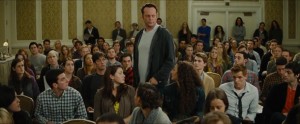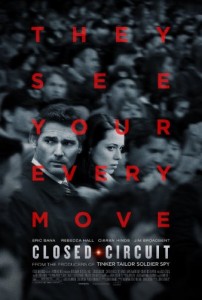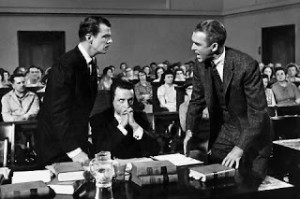Black or White
Posted on January 29, 2015 at 5:58 pm

Writer-director Mike Binder sure likes to get Kevin Costner drunk. As in his uneven but impressive “The Upside of Anger,” Binder once again has Costner playing a man who is a little lost and usually shnockered, a role well suited for Costner’s loose-limbed, naturalist wryness. Binder’s strengths are evident here. He creates complex, unhappy characters who are articulate without being artificially quippy. He casts superb actors and gets outstanding performances (“The Upside of Anger,” flawed as it was, is worth seeing just to watch Joan Allen work through so many variations on ferocity, loss, and doubt). And in this film, he takes a highly charged situation that could easily be overly melodramatic, formulaic, or polemical and gives it nuance and dignity. No matter what your inclination on the custody dispute over a biracial child at the center of the film, you will rethink it.
Costner plays Elliot, a lawyer who learns in the first moments of the film that his wife Carol (Jennifer Ehle) has been killed in a car accident. She has had most of the responsibility of caring for their granddaughter Eloise (Jillian Estell), who has lived with them since she was born, because her mother, then just 17 years old, died in childbirth.
Elliot is so overwhelmed by loss that the next morning he takes Eloise to school without telling her what happened. He has no idea of what the morning routine is, how to fix Eloise’s hair, or even where exactly the school is located.
That afternoon, with some bolstering of his courage via alcohol and his law partner, Elliot finally tells Eloise that her grandmother has died. He is committed to continuing to care for her. But her other grandmother, Rowena (a terrific Octavia Spencer) wants to have a bigger role in Eloise’s life. She files for joint custody. Her brother Jeremiah (Anthony Mackie), a successful litigator, tells her that if she wants to succeed, she will have to have a more powerful argument than her rights as the child’s grandmother. She will have to claim that Elliot is not a suitable guardian for a black child. “Do you want what is best for the child?” asked Jeremiah. “Then has a problem with black people.” Elliot’s counsel urges him to be aggressive. “Are you okay getting ugly?”
Rowena and Elliot respect, even have some affection for one another. Each knows the other is far more than the extremes alleged in the court filings. But the system is not set up for anything but extremes. Jeremiah is successful in getting the case before a black woman judge (the excellent Paula Newsome), and both sides think she will be inclined to give Eloise to her black relatives.
But both sides are vulnerable, and, as the judge has warned them, once a child is in the system it is within her power to decide that neither grandparent should have custody. Elliot and Rowena both understand that the litigation will bring them to the brink of mutually assured destruction. But things heat up. Rowena brings in her son Reggie (André Holland), Eloise’s father and amends the suit to call for full custody, saying Elliot is not fit to raise Eloise because he drinks. While his legal claim is stronger on paper because he is her parent, his claim is also weaker because he has a record of drug use and criminal behavior and has never cared for or even spent time with his daughter. We see the contrast between Elliot’s big, luxurious, but empty house and Rowena’s crowded, chaotic, but loving home. Elliot is white and male. Can he understand Eloise? Both of Eloise’s grandparents are still struggling with their failures as parents the first time around as well.
Binder continues to be better with the small moments than the big ones, and there are affecting one-on-one moments with Reggie and his mother and uncle, and with Elliot and Rowena. But he still has trouble with finding a good way to end a story, and he has no idea of how to write for a child. Estell has a likeable screen presence, but is asked to deliver some unforgivable lines that are far too idealized and age-inappropriate for her character. It is too bad that a film that shows exceptional sensitivity to its adult characters so badly fails the girl on whose behalf they are fighting.
Parents should know that this film includes some strong language, including racist epithets, drug and alcohol abuse, and sad offscreen deaths. The family issues and custody battle may be upsetting to some viewers.
Family discussion: If you were the judge, where would you put Eloise? Why does Duvon write so many papers? Why does he learn so many languages?
If you like this, try: Clover and “Losing Isaiah”




